.png)
User Research, end-to-end Product design, Usability Testing
Product Manager, Backend Engineer, Front End Engineer, Graphic Designer, Privacy Lawyer and Product Designer (me)
5 Months
Baiya is 0-1 project of creating a personal AI assistant as part of a start up acceleration program with Imperial. I was working with a cross-functional team which included a Product Manager, a privacy lawyer, a backend engineer, a front end engineer and UI designer.
Research shows we forget over 80% of what we hear within 24 hours. Combined with the fact the we are consuming more data than ever, this leads to information overload.
of people forget things on a daily basis.
of people are affected by stress from information overload.
of people feel overwhelmed in their day to day lives.
I began with a research plan and started conducting interviews. It was a mix of 29 in depth interviews and 100 surveys where I asked how users were managing their day to day tasks, the kind of tools they used and the problems they faced. There was a common consensus that users were finding it difficult to juggle numerous aspects of their lives
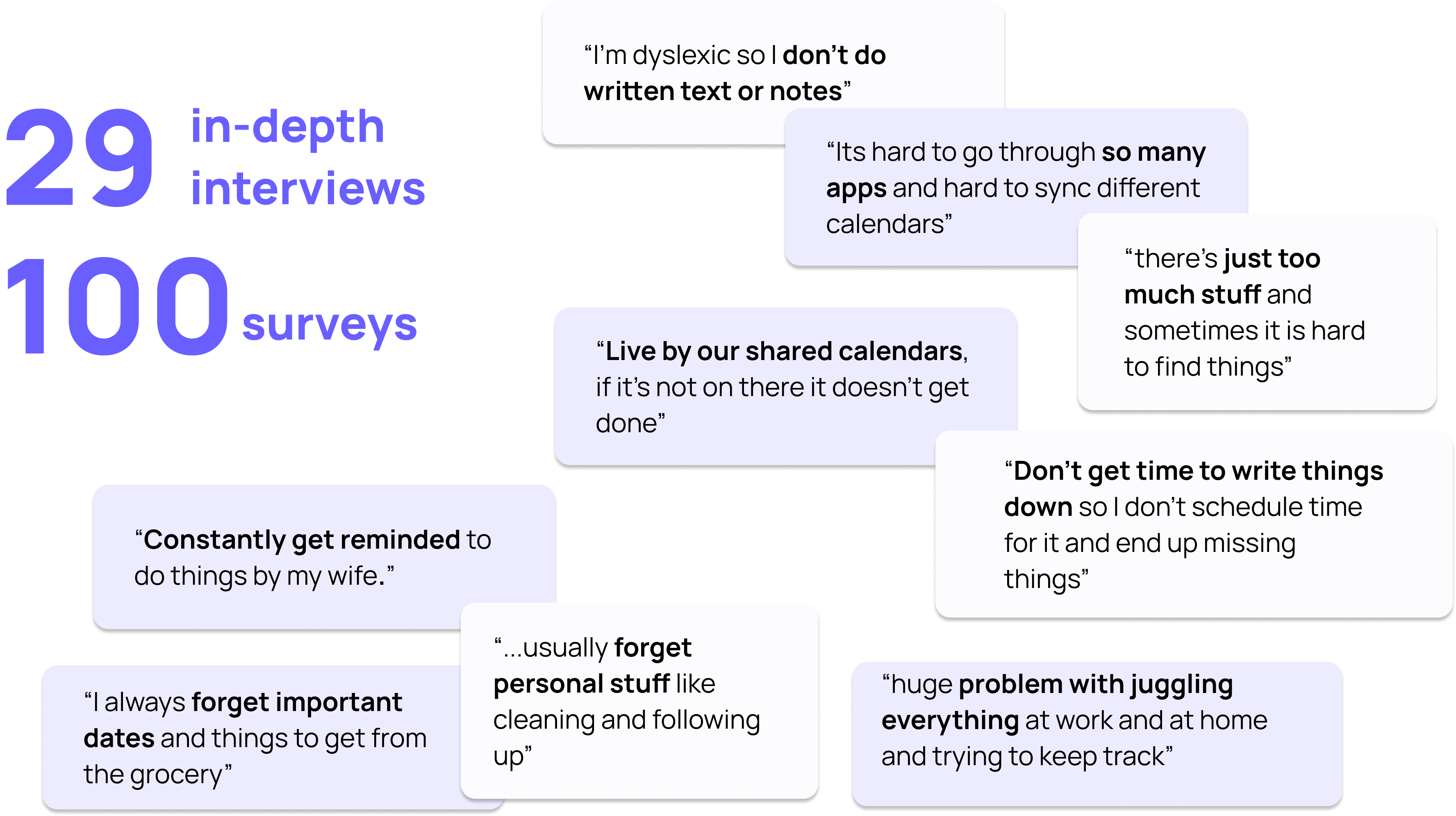
1. Forgetfulness
Majority echoed that they would forget things mostly in their personal lives
2. Fragmented Ecosystems
Users were dealing with fragmented ecosystems, different tools for work, for home, for sharing
3. Diverse Tool Usage
Everyone had a different preference in terms of tools being used
4. Hacking the system
Users found creative ways like creating whatsapp chats with themselves to manage their tasks
I then conducted a brainstorming session where using crazy 8s we came up with over 30 different ideas ranging from a emotional guidance, tailouring to particular sector like lawyers. Using a prioritisation matrix, I decided to focus on four areas (memory issues, education, workplace and personal life)
.png)
Competitive analysis of existing tools showed that that they were geared towards a formal meeting, with limited time on transcriptions. There was a rise of AI wearables but these had additional expense and a steep acceptance curve.
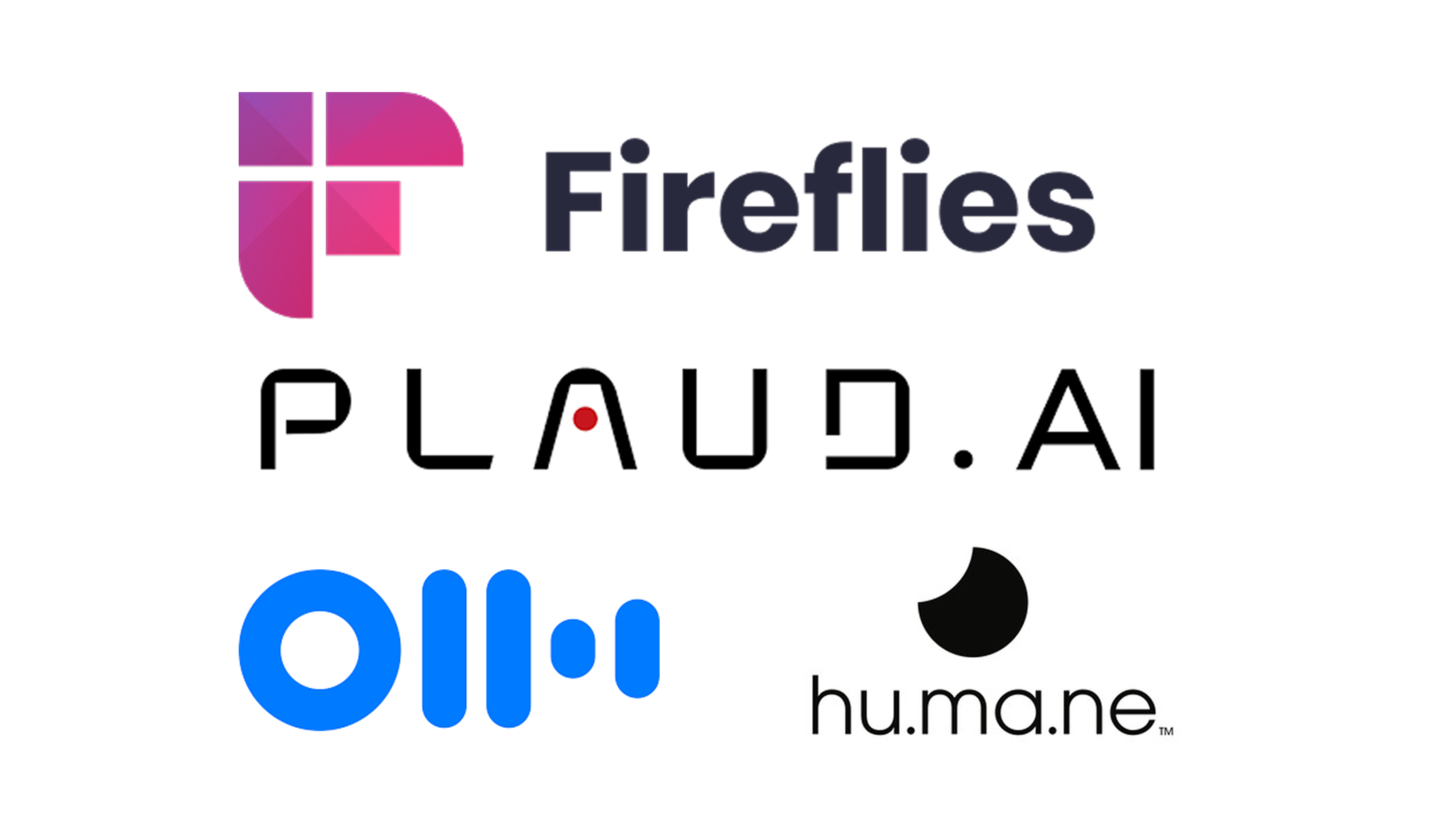
The initial idea was to have an always on 24/7 transcription which would auto detect your voice and capture your conversations. I decided to do some concept testing to validate our assumptions and this is where we had to pivot the entire project.The term "always on" didn't make users feel comfortable and they wanted to be able to have control on when they could turn it off.
.png)
Necessary information is presented in a clear concise manner.
Allowing users to consent and adjust the data along with a way to exit.
Making sure that user data is safe and private.
Making it relatable to the users
Through numerous stakeholder meetings, the key features for the app were defined along with the different settings and functionalities.
.png)
I decided to conduct usability testing with two options, a paid subscription with complete privacy and a free model with personalised adverts. Through comparitive testing with 12 participants as well as using Qualitrics where I gathered feedback around usability and general feedback .
.png)
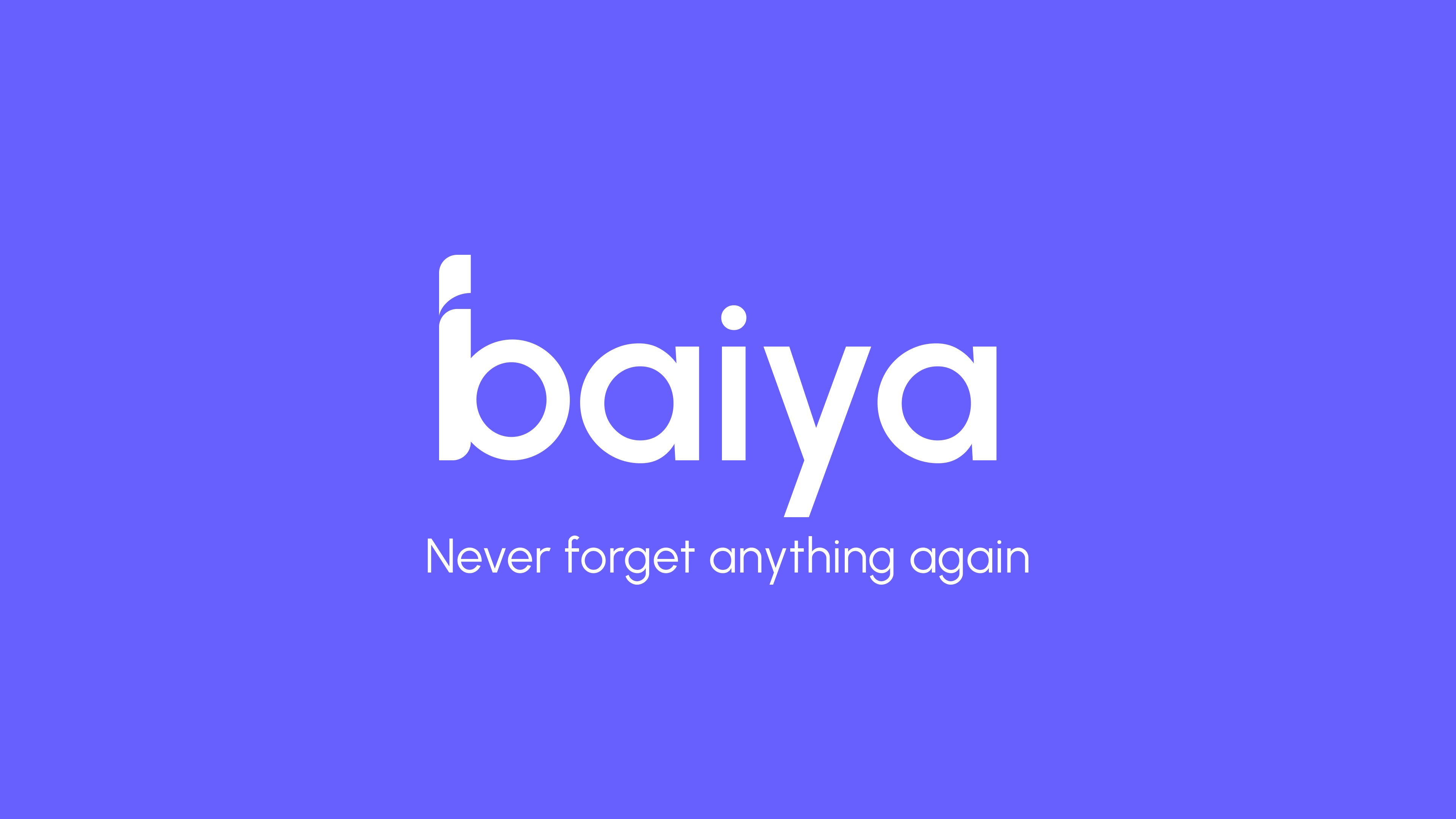
Voice to text transcription with automatic summaries, action items and transcripts.
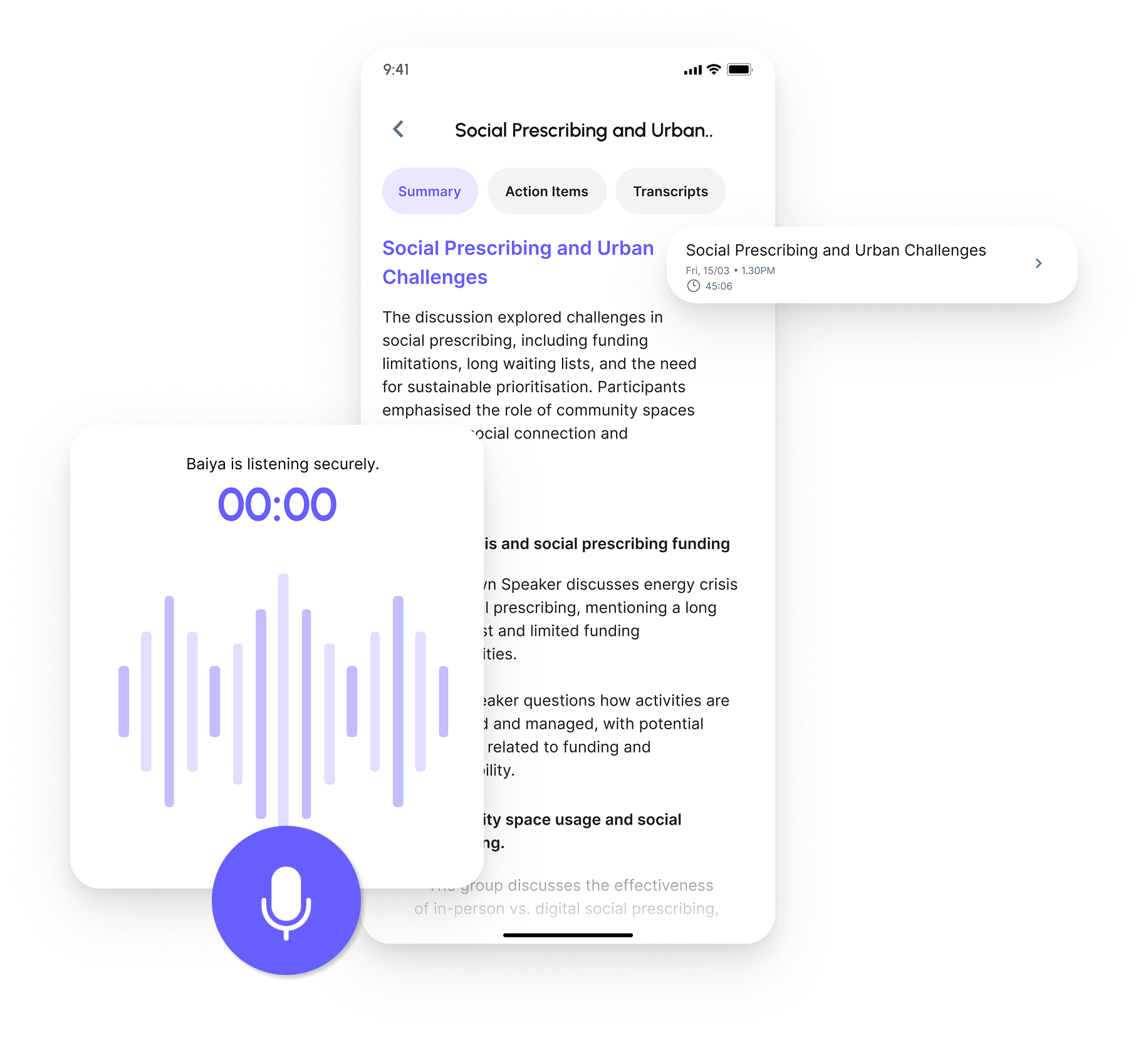
- Create task lists, to-do items automatically from your conversations and meetings
.png)
.png)
- Ask questions based on your conversations and access the crucial details
- Integrate with other apps like your calendar, grocery apps etc
- User can directly add meetings or items into the basket
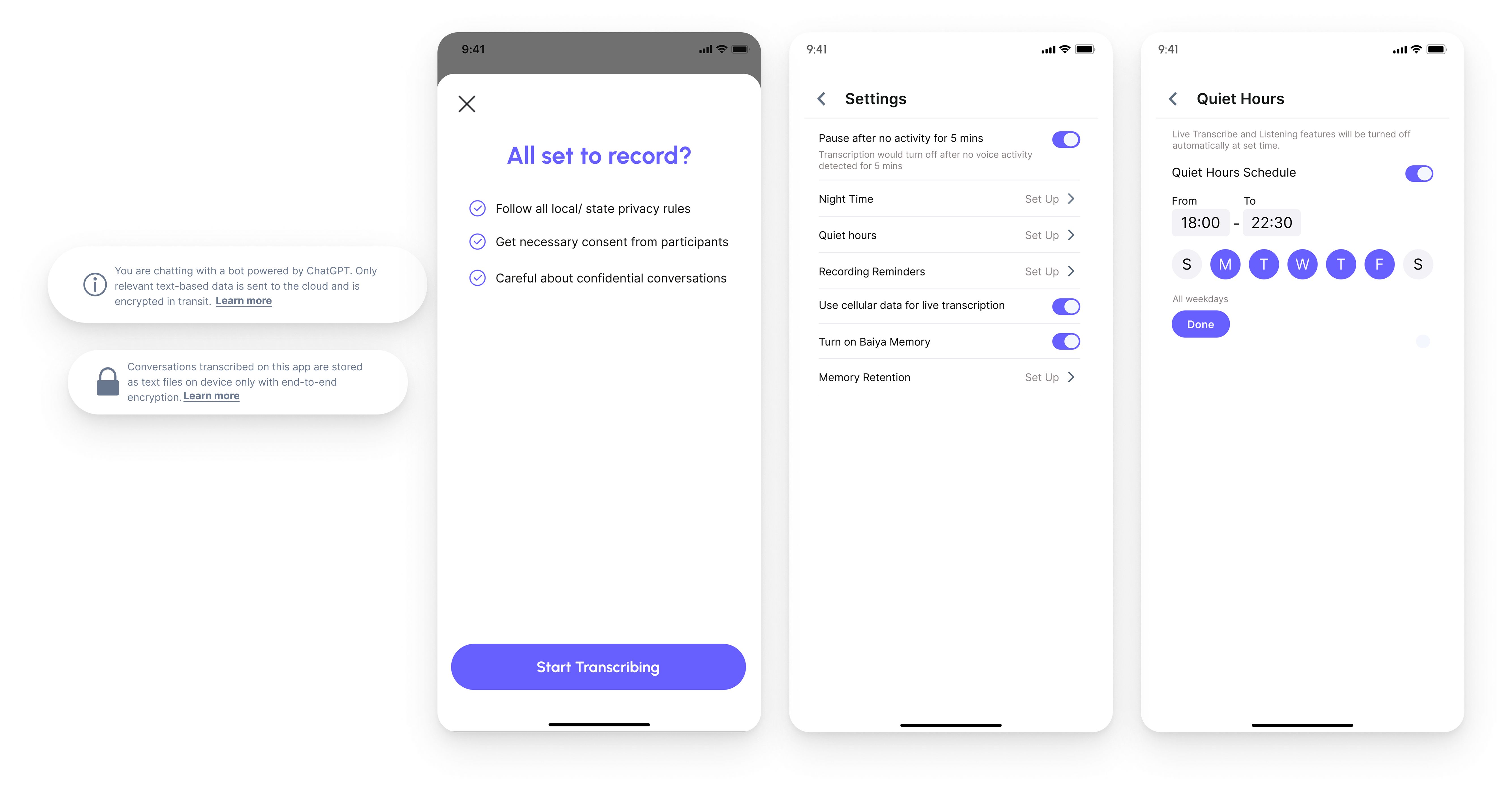
Conversations are end-to-end encrypted and stored as text only. Users have ability to turn off recording
quiet hours and set limits to pause recording feature after 5 mins of inactivity.
We presented the concept of Nest to industry experts for validation and we received really positive responses including an opportunity to present our proposal to a charity working on an initiative in a similar space.
.png)
Through transparency, balancing between ease of use and introducing friction, this project showed how to create trust in technology.
Making sure the tone of voice in the app was contextual, clear but also evoked security.